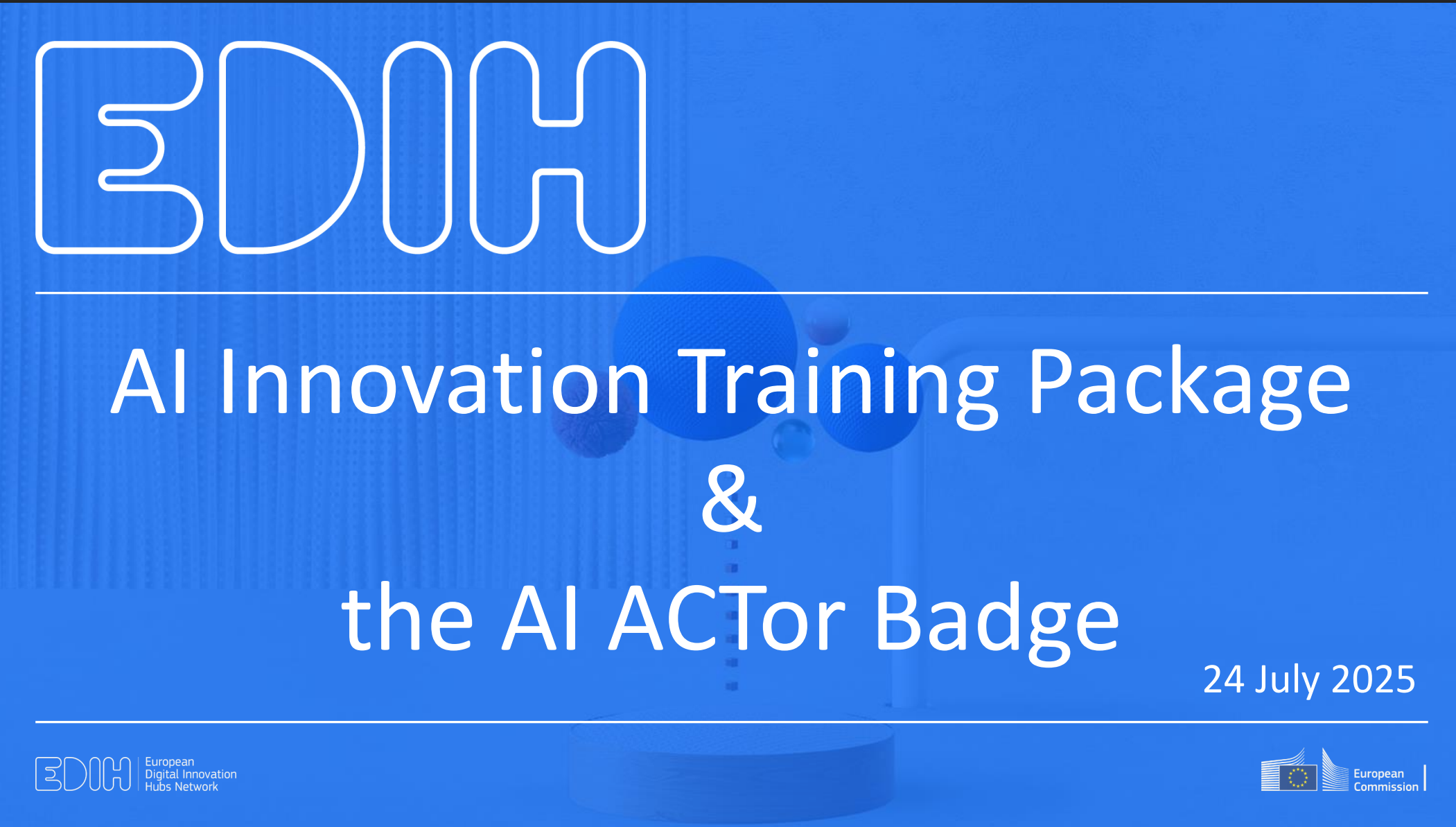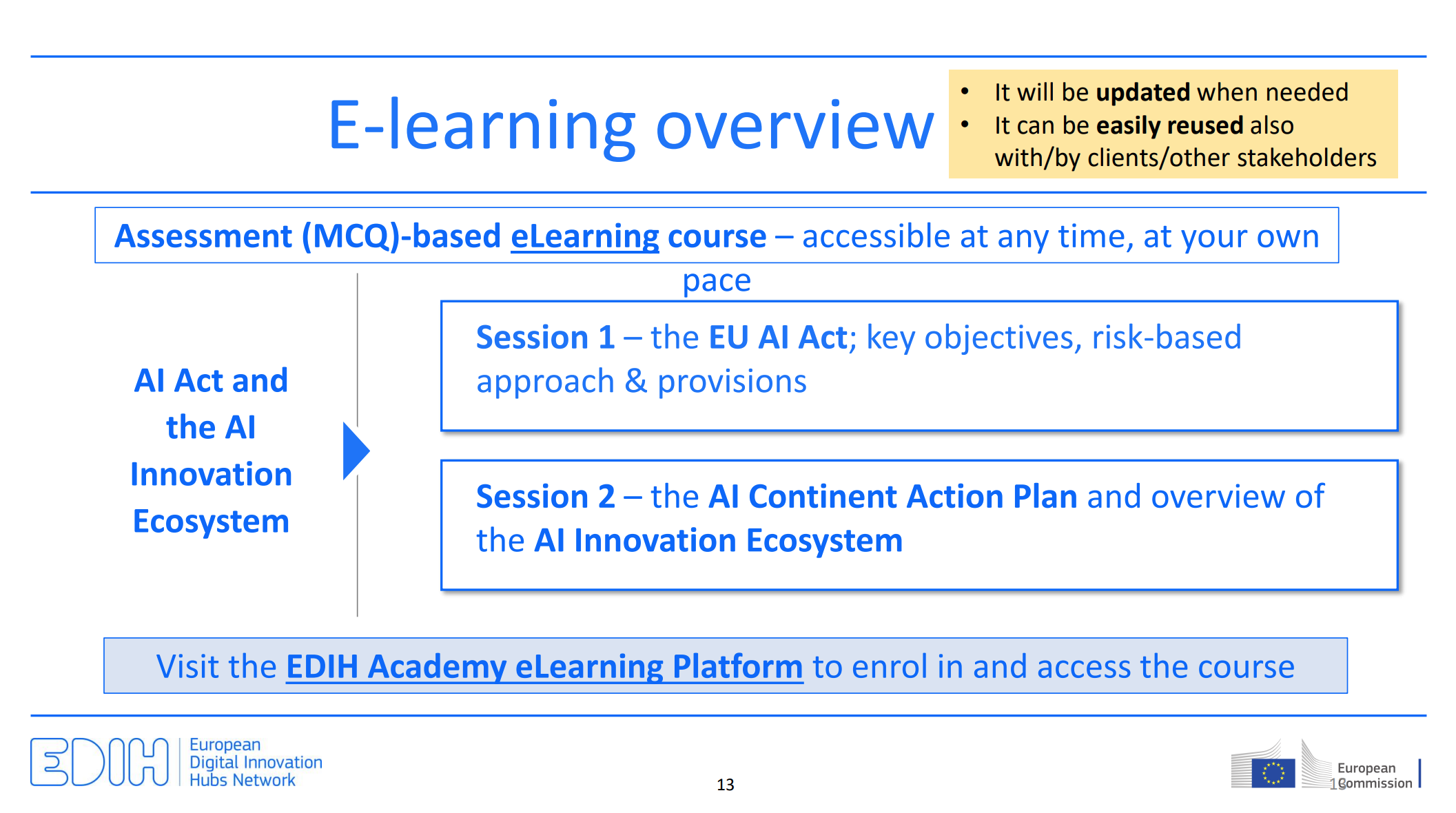In July, DIGIS3 attended the presentation of the new European AI Innovation Ecosystem web resource, which explained how European Digital Innovation Hubs (EDIHs) can access training, tools, and recognition through the AI ACTor badge, which is obtained by completing e-learning courses and webinars with assessment.

During the session, the training program was presented, which aims to certify that at least one representative from each EDIH is trained to apply and share knowledge about the European Artificial Intelligence Act (AI Act) within their organization. To obtain the badge, representatives must complete two e-learning courses, participate in two live webinars, and pass both exams with a minimum of 80% correct answers. In addition, the representative is expected to disseminate the training to their team to enhance collective knowledge.
The new AI Innovation Ecosystem web platform was also presented, which acts as a centralized resource where users can access courses, consult resources, and keep up to date with training dates and schedules. The platform is accessible at any time, allowing courses to be reused with clients or partners and keeping content up to date as legal frameworks change or available resources expand.

The course on the AI Act is divided into five modules, covering everything from the concepts and objectives of the regulation and the legal responsibilities of providers and users to the classification of AI models according to risk level, the current regulatory framework, and the timelines for its implementation along with support measures. At the end of the course, additional resources and useful contacts are provided to help prepare for the exams.
On the other hand, the course on the European AI innovation system consists of two modules that explain Europe's strategic vision for artificial intelligence and the instruments available to promote the development, testing, and adoption of AI on the continent. The live webinars delve into how EDIHs interact with these instruments, highlighting the relationship with Testing and Experimentation Facilities (TEFs).
Finally, the first webinar in the training package served as a general introduction to the program and explained the framework for collaboration between EDIHs and TEFs, as well as showing how to take advantage of the resources available on the platform and the AI innovation ecosystem.
In conclusion, this training aims to equip EDIHs with both a legal understanding of the AI Act and practical skills within the European AI innovation system, with the aim of strengthening a European digital community that is aligned and prepared to face the challenges and opportunities presented by the new regulation.